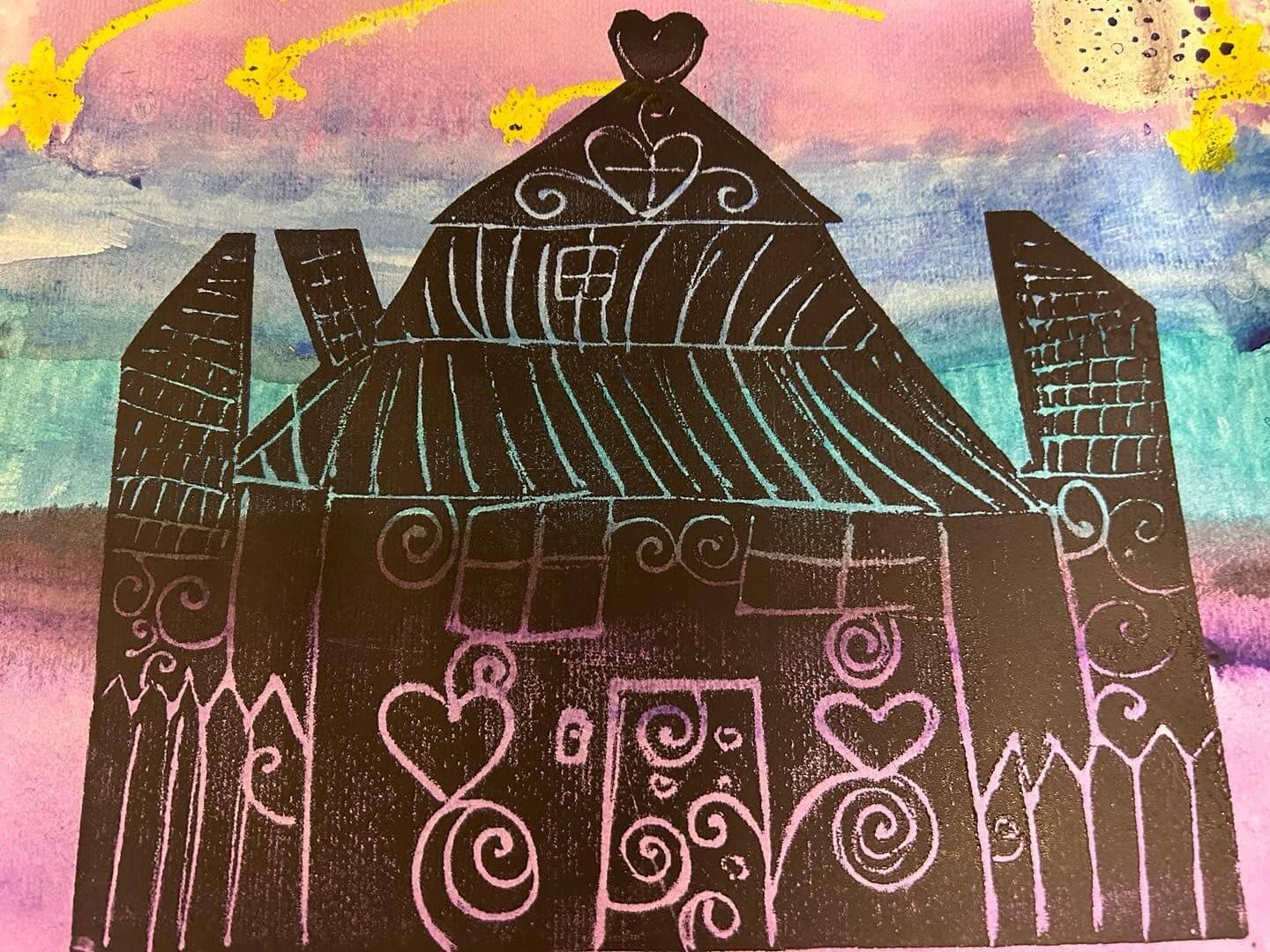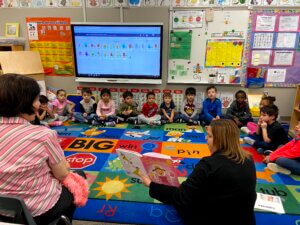
Young Artists in the Spotlight: Allie Kazan and the Magic Mansion
Check out this artwork by students at Orange County Academy......
Learn MoreOrlando Family Stage
The Finest in Family Theater
2/16/2021
Emily Freeman
In the field of early childhood development, language and literacy skill-building is paramount. We always hear, “Read, read, read!” But, why is it so important to read to and with our young people? In addition to reading, what do drama and theatre tools offer early childhood spaces in the way of promoting language and literacy development? At Orlando REP, our Story Drama programs are one of our answers to these questions. The combination of books, dynamic read-alouds, and enacting stories through drama are just the ticket for supporting our young peoples’ development.
5 literacy skills that Story Drama supports in our early childhood participants include:
 |
Receptive Language Skills (Input) Definition: Receptive language is the ability to understand words and language (Source). |
Story Drama lessons always start with a book. The book is read by a facilitator who engages with the text using their Actor’s Tools – voice, body, mind and imagination. Our teaching artists and trained teachers who facilitate story drama use dynamics in their voices as well as unique character sounds or tones. Some students learn best by listening with their eyes. Facilitators that use their bodies as they read or who highlight images from a text to inspire discussion and questions support receptive language skill-building.
Facilitators ask thoughtful and intentional questions during a book reading and throughout Story Drama lessons to gauge understanding. Students build understanding from listening to a text, using visuals, watching gestures, as well as exploring context and setting. Listening is a building block for understanding and both are skills supported by Story Drama.
 |
Productive Language Skills (Output) Definition: Expressive language is the use of words, sentences, gestures and writing to convey meaning and messages to others (Source). |
“In today’s drama, we’re going to leave our classroom and go to outerspace!” In Story Drama, students interact and explore worlds, stories, and characters. This invitation to interact, interpret, collaborate, negotiate, and ask questions invites students to use gesture or productive language to actually embody stories. This productive language skill occurs in a classroom setting or even between a parent and child during a Story Drama lesson.
In Story Drama, students practice new vocabulary, answer questions verbally and physically (using their bodies), and reflect. They are asked to produce language that directly aligns with the goals of the lesson. Additionally, Story Drama encourages students to get emotionally involved, which means they respond within the context of the drama, expressing a variety of emotions in their speech and bodies. Rich descriptive language practice as well as responding in character are extremely powerful tools to support productive language skills.
Finally, Story Drama is often rooted in students’ own lives and bodies. Facilitators ask participants to make connections to their own experiences, create original characters, feel emotions and demonstrate those on their faces through performance. These mini performances or creative connections to their own lives invites them to personalize and internalize what is being learned! This final skill is essential for productive language development.
Whether working to support students’ receptive or productive language development, Story Drama works because it’s as fun as it is rigorous. Students are not passive observers, but participants in all aspects of the lesson, without their engagement, the drama can not move forward. At Orlando REP, we believe that without dynamic and creative educational experiences like Story Drama, the diverse learners we work with would also be left behind.
Learn more about Story Drama programs at Orlando Family Stage here!
Don't miss out on the magic. Grab your tickets now and
make unforgettable memories at Orlando Family Stage!